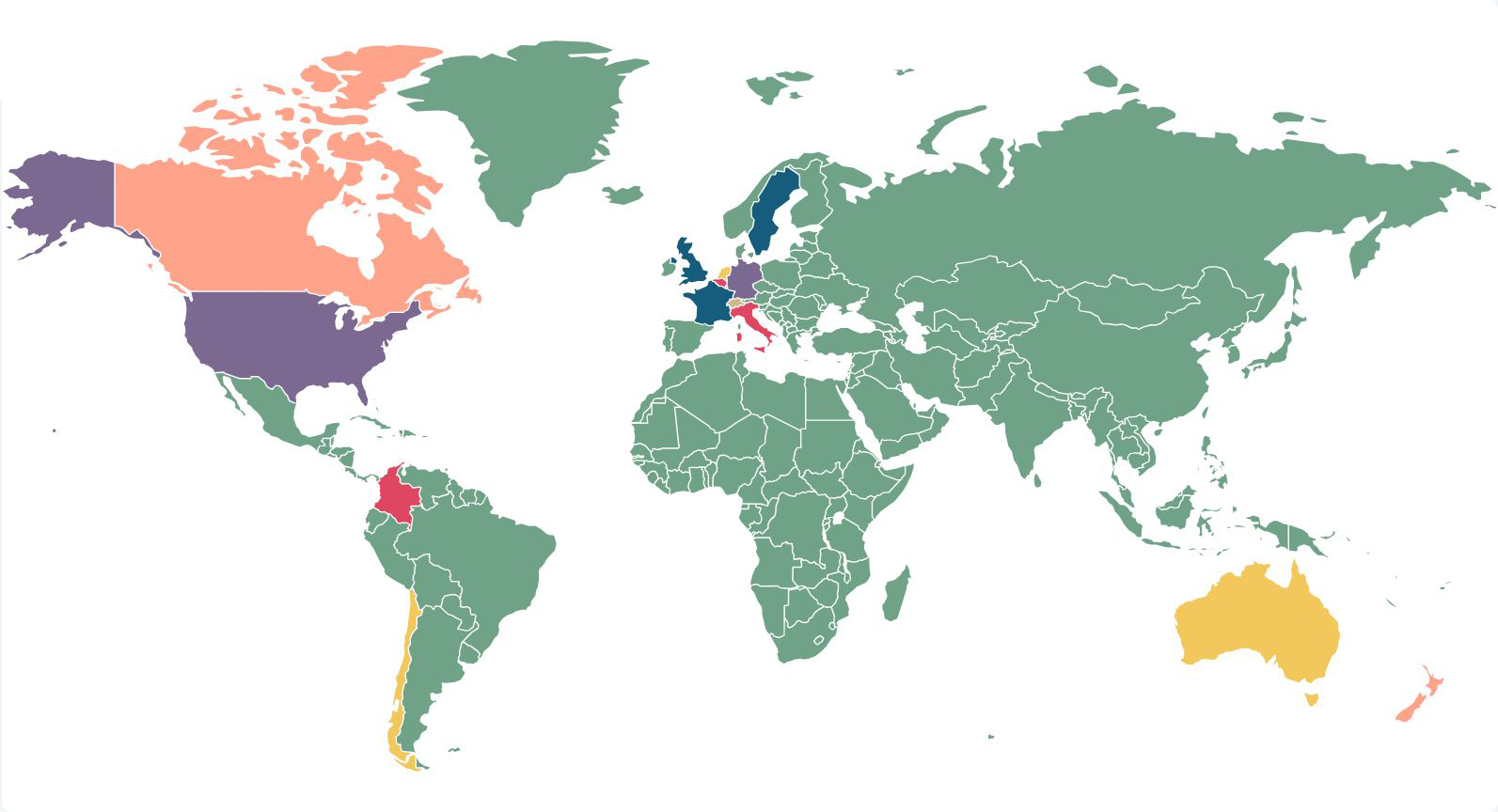The transition to renewables will unearth new risk exposures
While the output from renewable energy is green, the same is not true for every aspect of the process. The mining and extraction of rare earth materials required may generate significant carbon emissions and create various additional risks. Litigation or allegations relating to breaches of sustainability regulations could generate financial losses for companies. These losses may not only be direct, but also as a consequence of reputational harm. Those financial losses could generate claims from shareholders who have been adversely affected, leading to claims under directors and officers policies. Mining and extraction may also involve dangerous working conditions and raise questions around the human rights of inhabitants of these locations. Litigation relating to the placement of renewable energy infrastructure is also likely to increase. There is also a disconnect between the ambition of the circular economy and recycling of equipment that is now reaching end-of-life. Looking forward, managing expectations around renewables should form part for the ambit of risk manager, broker and insurer discussions.
Climate change will increase ports and terminals risks
Climate change induced increases in extreme weather events coupled with rising sea levels are necessitating ports and terminal operators and their insurers to re-evaluate their range of exposures. Located on exposed coasts or in low lying estuaries, ports have always been vulnerable to windstorms, flooding and storm-surge. Climate change will only increase that vulnerability. This is particularly so with older infrastructure, which was designed and built using now outdated assumptions about extreme weather exposures. For example, once in 200 year storms now arise more frequently. Insurers and risk engineers should work with ports and terminals operators to develop adaption and resilience plans to mitigate against the amplified risks to this critical infrastructure.
The dark fleet will continue to pose additional risks
The imposition of further sanctions from Western nations against Russia, affecting its oil and gas industry, will cause the dark fleet to remain in operation for the purposes of circumnavigating those sanctions. Most of this dark fleet have substandard maintenance with no insurance, posing a major risk for the environment in case of an oil spillage and a lack of recourse to other vessels following collision incidents. The main risks will come from the highly dangerous and environmentally perilous ship-to-ship transfers on the high seas with no proper oversight. With no realistic end in sight for the Russia-Ukraine conflict, the risks posed by the dark fleet regrettably appear here to stay in the short-medium term and the insurance industry will need to consider the level of capacity it can and will allocate to this area.
Technology and data is key to supply chain resilience
Critical supply chains relying on marine transportation in key hubs around the world may face logistical challenges similar to those encountered at the Port of Baltimore earlier this year (when the Francis Scott Key Bridge partially collapsed after being struck by a container ship), causing major disruptions and economic ripple effects on global supply chains. Revisiting guidelines and putting into place robust emergency plans will increase the resilience of supply chains internationally and in turn prevent an increase in ocean freight container shipping rates. Data sharing and the use of AI for managing the inflow of information when redistributing the affected cargo will reduce any negative effects on global supply chains.
2025 will see energy being put into arbitrations
COVID-19 and the invasion of Ukraine have disrupted the global energy market and in turn caused several countries to invest in their own oil and gas industries. This threatens walking back on policies to support and grow renewable energy. Such actions have already led to numerous disputes (often subject to 'confidential' arbitration), for example between joint venture partners, and we are likely to see a sharp increase in 2025. For insurers, there is still a risk of price volatility arising from the ongoing invasion of Ukraine, which would have a knock-on effect for energy producers and their insurers, in turn increasing the cost of their policy programmes in respect of critical oil and gas facilities across the globe. While the insurance market – especially the marine and political violence arenas – have stepped up to ensure Ukrainian-linked risks can, where possible, benefit from continued insurance provision, this potential knock-on effect has more wide-reaching consequences.




